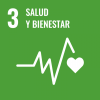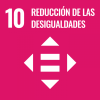Renk, 17 de mayo de 2023 – La docencia ha sido siempre la pasión de Long Deng. Su sueño lo llevó a la ciudad de Al-Kalakla en Jartum donde estudió Educación en la Universidad Abierta de Sudán siete años atrás. La flexibilidad de sus estudios le permitió también tener un empleo de medio tiempo.
“Con un título en la mano, yo ya estaba a un paso de poder cumplir mi sueño de trabajar como docente. De modo que cuando finalmente conseguí ese empleo y tuve la oportunidad de enseñarles a niños y niñas en una escuela local en Abu Adam me sentí muy feliz”.
Cuando las hostilidades comenzaron el 15 de abril no tuvo más opción que irse del país.
Este padre de tres hijos se fue de Abu Adam antes de que la violencia los alcanzara. Pero la vida que había logrado construir en los últimos siete años no podía ser puesta en una valija y llevada a otro lugar. Tuvo que priorizar elementos esenciales para el viaje. El transporte fue el siguiente problema que se les presentó; había pocos medios de transporte disponibles y los pocos que había habían triplicado sus precios.
Deng tuvo que gastar todos sus ahorros para poder conseguir transporte seguro para su esposa, sus dos hijos, su sobrina y para él mismo. Pero a pesar de invertir todos sus ahorros, no fue suficiente. Como muchas otras personas, tuvo que hacer un arreglo con el propietario del vehículo y le dijo que iba a pagarle cuando llegaran, pensando que iba a conseguir dinero del lado de la frontera de Sudán del Sur.
El primer coche que consiguieron tenía que ser compartido con otras familias y Deng decidió que su esposa y sus hijos tomaran ese.
“Debía ser así, mi esposa y mis hijos tenían que irse primero. Me pareció bien quedarme. Tal vez tendría la suerte de irme yo también inmediatamente después, y si eso no ocurría, al menos iba a saber que ellos estaban seguros”, dice.
Deng logró luego conseguir transporte y fue detrás de ellos al poco tiempo. El vehículo en el que viajó estaba lleno de artículos familiares y de pasajeros y por ese motivo el viaje fue muy lento. Tuvieron que pasar la noche en la ciudad de Rabek, a 158 kilómetros de la frontera entre Sudán y Sudán del Sur.
El eventual viaje a través de la frontera le trajo recuerdos de cuándo y del por qué se había ido. Siete años más tarde el regreso a cada no fue lo que Deng había imaginado pero ese retorno le ofreció un momento de claridad: la alegría de saber que había hecho algo en Sudán, que había podido desarrollar una vida sobre la base de su pasión, y que ahora sentía una especie de llamado para empezar a hacer lo mismo en su ciudad natal de Bentiu.

Deng se sienta al lado de su equipaje en el centro de tránsito, aguardando por el transporte que lo llevará hasta su casa. Foto: OIM Sudán del Sur
Back home in South Sudan, he hasn’t stopped thinking about his students.
“I always think of my students, hoping that they made it out as well and, if not, are safe and sound.”
Like Deng, most of the South Sudanese returning home want to go back to their communities.
“I left my rented house locked and if the fighting ends and things get back to normal, I would wish to go back and collect my things,” he adds.
Over 90 per cent of the nearly 50,000 people who have arrived in South Sudan since the start of the fighting are South Sudanese. Wounthou/Juda continues to be the main point of entry for arrivals.
Like Deng, they want to go to their communities and cannot wait. At the Juda point of entry in Renk, approximately 2,000 to 3,000 arrivals are recorded daily; the majority are South Sudanese. Most of them have already spent all their money to reach the crossing. Some are reaching out to their relatives to facilitate their journeys, but the majority are unable to. If they don’t receive help, they might become stranded under the scorching heat for days or even weeks.
Having been successfully registered, Deng has his family beside him, and his luggage packed, as they gather next to a bus awaiting the boarding process. “So, when do we leave?” he asks with optimism.
The bus is part of a seven-vehicle fleet operated by the International Organization for Migration (IOM), that has been facilitating the transport of people from the Juda point of entry to the Renk transit centre. There, IOM and other humanitarian organizations are offering emergency services before onward movement to people’s final destination, their homes and communities.
“I have my extended family in Bentiu (in northern South Sudan), and I am looking forward to seeing them. This time, not to visit but to stay.”

El personal de la OIM saluda a una embarcación que parte desde Renk en Sudán del Sur con 388 sudaneses del sur a bordo, como parte del viaje hasta sus comunidades. Foto: OIM Sudán del Sur
So far, the Organization has facilitated the onward transportation of nearly 1,000 South Sudanese returnees from Renk to Malakal through river transportation, with the first one departing on 14 May. More are set to depart in the coming days. Deng hopes to be on one of them soon.
Written by Kennedy Okoth, Communications Officer (Europe, Africa and the Middle East)



